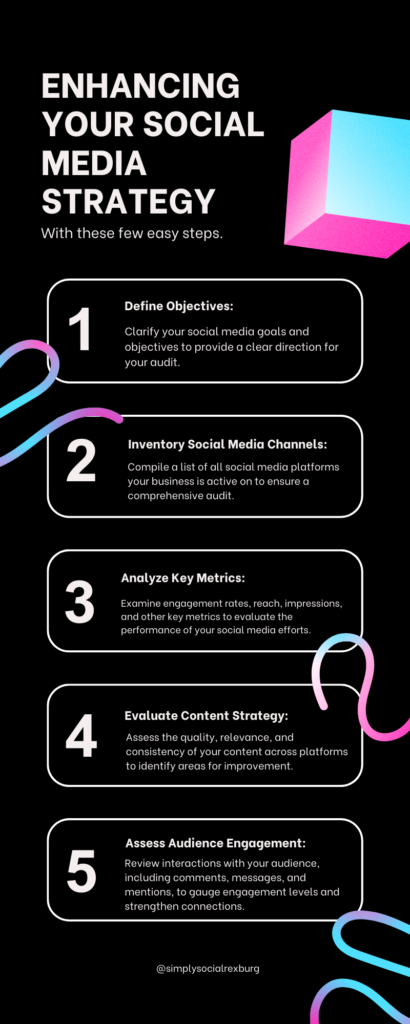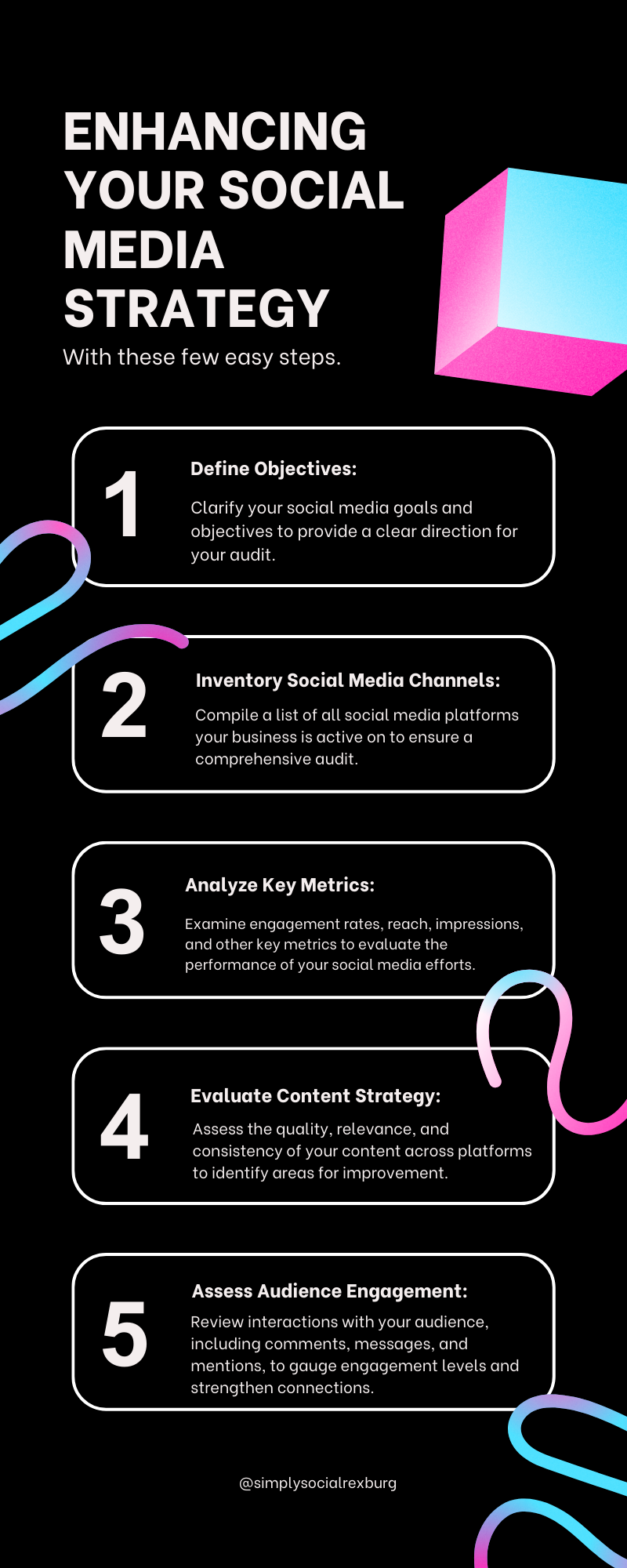
As a business owner navigating the intricate world of social media, it’s crucial to ensure that your online presence is not just active, but also effective. One powerful tool in your arsenal to achieve this is the social media audit. This systematic examination of your social media channels provides invaluable insights that can inform strategic decisions and drive meaningful results. Let’s break down the process step by step:
1. Define Your Objectives
Before diving into the audit process, it’s essential to establish clear objectives. What are you hoping to achieve through your social media efforts? Whether it’s increasing brand awareness, driving website traffic, or generating leads, having defined goals will shape the direction of your audit and subsequent strategy adjustments.
2. Inventory Your Social Media Channels
Start by compiling a comprehensive list of all the social media channels your business is active on. This includes major platforms like Facebook, Twitter, Instagram, LinkedIn, as well as any niche or industry-specific platforms. Having a complete inventory will ensure that no channel is overlooked during the audit process.
3. Analyze Key Metrics
Once you’ve identified your social media channels, it’s time to delve into the data. Review key metrics such as engagement rate, reach, impressions, follower growth, and conversion rates. Analyzing these metrics will provide insights into the effectiveness of your current strategy and help identify areas for improvement.
4. Evaluate Content Strategy
Your content is the backbone of your social media strategy. Evaluate the quality, relevance, and consistency of your posts across all channels. Does your content align with your brand identity and resonate with your target audience? Are you utilizing a variety of content formats to keep your audience engaged? Assessing your content strategy will help you identify what’s working well and what needs adjustment.
5. Assess Audience Engagement
Social media is inherently social, and fostering meaningful connections with your audience is essential. Review your interactions with followers, including comments, messages, and mentions. Are you actively engaging with your audience and responding to their inquiries and feedback? Building a strong rapport with your audience is key to cultivating brand loyalty and driving engagement.
6. Conduct Competitive Analysis
Understanding what your competitors are doing on social media can provide valuable insights into industry trends and best practices. Take a closer look at your competitors’ social media presence. What types of content are they posting? How frequently are they engaging with their audience? Conducting a competitive analysis can help you identify opportunities for differentiation and improvement.
7. Identify Strengths and Weaknesses
After conducting a thorough analysis of your social media channels, identify the strengths and weaknesses of your current strategy. What are you doing well, and where is there room for improvement? By understanding what’s working and what’s not, you can make informed decisions to optimize your social media strategy moving forward.
8. Develop an Action Plan
Armed with insights from your social media audit, develop a comprehensive action plan to address areas for improvement and capitalize on strengths. This may involve refining your content strategy, increasing engagement efforts, or reallocating resources to focus on high-performing channels. Ensure that your action plan is actionable, measurable, and aligned with your overarching business objectives.
9. Implement Changes and Monitor Progress
Once you’ve developed your action plan, it’s time to put it into action. Implement the necessary changes to your social media strategy and closely monitor their impact. Continuously track key metrics to gauge progress and make adjustments as needed. Remember that social media is dynamic, and optimizing your strategy is an ongoing process.

In conclusion, conducting a social media audit is a critical component of any successful social media strategy. By systematically evaluating your social media channels, analyzing key metrics, and identifying areas for improvement, you can optimize your online presence and drive meaningful results for your business. So, roll up your sleeves, dive into the data, and elevate your social media strategy to new heights.
